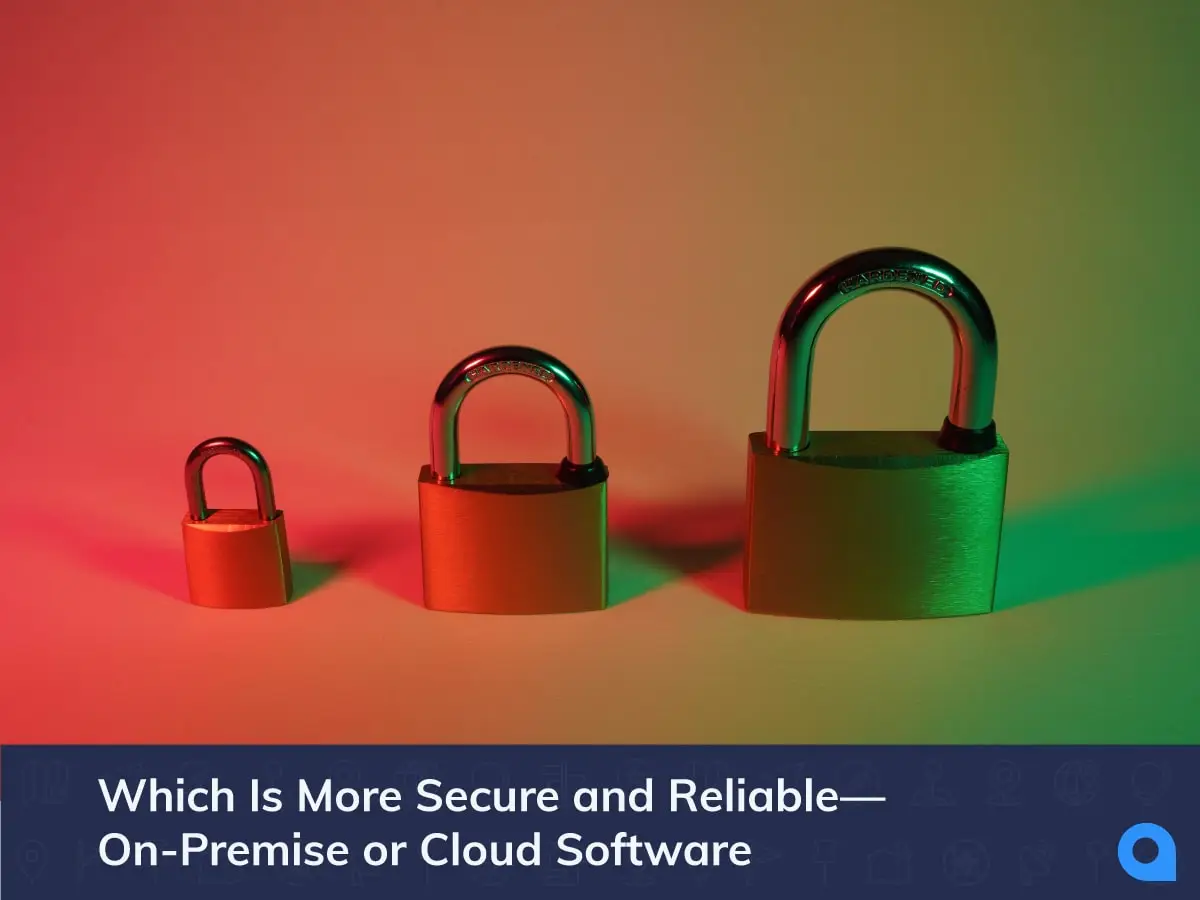
No matter the industry, data security is, and always will be, paramount. Data breaches can cause significant loss of revenue and customer trust.
No doubt you remember the 2017 Equifax data breach. This breach affected 148 million records, including social security numbers, birth dates, addresses, and in some cases driver's license numbers and credit card information. Equifax paid out $700 million in damages to help people affected by the data breach, and suffered through reputational damage and congressional inquiries.
To avoid a breach like that, you might be wondering, "Will my information be safer in the cloud or on-premise?"
In addition to security, you should be asking about reliability and uptime. In this article, we'll break down each of these three factors.

On-Premise Security, Reliability & Uptime
Security
With an on-premise solution, you license the software and it all resides on your premises, meaning you don't need to trust another company with your private data. Having all your data located within your in-house servers and IT infrastructure provides peace of mind.
Companies that have extra sensitive information or are in highly regulated industries, such as government and banking, require the level of security and privacy that an on-premise solution provides.
However, the security of a local solution is only as strong as your IT department.
Your IT team is responsible for setting security policies, as well as installing firewalls, antivirus software, and security patches. If mismanaged, on-premise servers can still be vulnerable.
Reliability & Uptime
As on-premise installations are not dependent on external systems or network connectivity, they're often considered to be more reliable. However, if your server breaks or glitches, you have a problem, and setting up a redundant system for an on-premises solution takes significant time and money.
If your systems are down, you're missing opportunities to reach customers. And while on-premise solutions don't rely on sometimes finicky internet providers, they are limited by the number of servers you have on site. If your local server isn't working properly, neither are you!
Cloud Security, Reliability & Uptime
Security
The gap between cloud vs on premise security isn't as large as it used to be. Today the largest cloud providers have robust security teams and tight procedures. You may even be able to take advantage of specialized security options that would be too expensive to implement yourself.
In addition, cloud security tends to be highly automated thanks to APIs, which can make traffic analysis and network monitoring easier and faster for your IT staff.
On the other hand, using public cloud-based services requires trusting a third-party with your most precious data and as some cloud-based security services come pre-configured, you may not have options for changes.
Depending on how heavily regulated your industry is, you must also ensure any provider you choose allows for compliance with necessary regulations.
For example, at Smarty we use a few different strategies to handle data privacy and security. Take a look at how we use active PII Redaction and Enhanced Data Privacy here.
Reliability & Uptime
Unlike on-premise servers, cloud solutions can quickly spin up new servers anytime a server fails. For most companies, it would be far too expensive to implement that much redundancy on premises. Thanks to that redundancy, your work can continue without disruption.
This also means your company is dependent on the cloud provider. If support for a product is discontinued because there's a new version, or if the cloud provider ceases operations, there's not much you can do.
In addition to reliability, uptime is a big selling point for cloud services. A cloud service that scales to meet demand can increase your uptime. More uptime means less interruption in your workflow. Cha-ching!
Pro Tip: When considering a vendor, ask them about historical uptime. That will give you a good idea of the kind of uptime you can expect if you choose to work with them. Check out Smarty's historical uptime here.
Security, reliability, and uptime are just three things to consider when choosing between an on-premise or cloud solution for your business. In our ebook, On-Premise Vs Cloud Software: The 6 Step Executive Guide, we cover many more factors, including deployment speed, compliance, and total cost of ownership.


 Ryan Muir
Ryan Muir